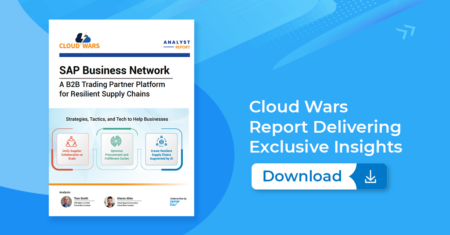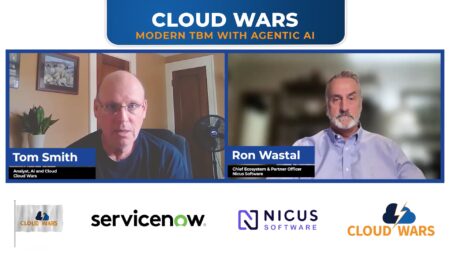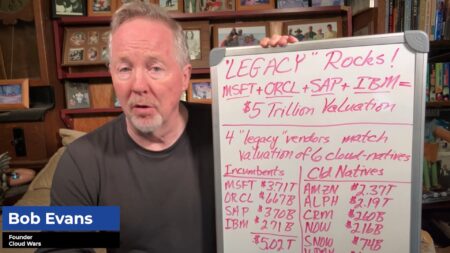
While clearly acknowledging that enterprise customers are focused on lowering their monthly cloud bills, Amazon CEO Andy Jassy also said the cloud continues to hold tremendous potential for AWS since businesses are only beginning to shift their information technology (IT) spending toward the cloud.
Speaking on Amazon’s Feb. 2 earnings call and clearly talking about the next several years rather than the next few quarters, the creator and former longtime leader of Amazon’s category-creating cloud business said, “I think it’s also useful to remember that 90% to 95% of the global IT spend remains on-premises.
“And if you believe that that equation is going to shift and flip, I don’t think on-premises will ever go away, but I really do believe in the next 10 to 15 years that most of it will be in the cloud if we continue to have the best customer experience, which we have to work really hard at,” Jassy said.
“And that means we have a lot of growth in front of us in the AWS business.”
Powerful Words in Today’s Short-Term World
These are important words from someone of Jassy’s stature because I suspect that, given the short attention spans many people have today blended with an aversion to playing the long game —that is, any timeframe extending beyond the next six months — we’ll soon be hearing that declining growth rates in the cloud are absolute proof of its total demise.
That it’s the latest Hula-Hoop.
That the cloud was all just a pumped-up bubble, a fad, a con job.
But that’s simply a lot of nonsense — and Jassy’s observation makes the case.
Now, should we be wary of Jassy’s intentions? Is it in the best interests of Andy Jassy, CEO of the parent company of the second-largest cloud-computing provider in the world, for corporate spending on the cloud to come roaring back at some point to record levels?
It sure as hell is.
And should we surprised that he’s offering an upbeat and optimistic view of what the cloud’s prospects are likely to be over the next decade?
Absolutely not.
But the larger point is that the cloud has earned the right to be called the greatest growth market the world has ever known.
And the reason growth rates in the cloud have declined is not because customers are saying, “Hey, this cloud stuff is a bunch of overhyped mumbo-jumbo” — rather, the cloud industry’s stupendous growth has slowed for the very simple reason that businesses don’t have as much money to spend as they did one or two or three years ago.
The current slowdown in the cloud boom is not some cataclysmic sign that the cloud era has ended. Business cycles come and go — always have, always will.
Why Reports of the Cloud’s Demise Are Absurd
But the cloud will endure because it gives customers:
- more innovation more quickly than ever before possible;
- more agility and speed and nimbleness to adjust to a fast-changing world;
- the ability to create constantly improving experiences for their customers;
- the opportunity to focus more/most of their IT spending on growth initiatives rather than zero-value maintenance and integration; and
- the mindset and the culture and the capabilities to become the digital version of themselves that the modern world absolutely requires.
Jassy described the power of the cloud this way: “We have a very robust, healthy customer pipeline with new customers and with migrations that are set to happen.
“During times of discontinuity like this, a lot of companies will step back and think about what they want to change strategically to be in a position to reinvent their businesses and change their customer experiences more quickly as uncertain economies emerge, and that often means moving to the cloud,” Jassy said on the call.
A moment ago I offered some reasons why “the cloud will endure,” but I should emphasize that I believe it will do much more than simply endure — it will, as the global economy recovers, continue to help businesses innovate, grow, dazzle, and move at the speed of and in lockstep with their customers.
Look again at the comment from Jassy highlighted at the top of this piece: “I think it’s also useful to remember that 90% to 95% of the global IT spend remains on-premises.”
For the sake of argument, let’s say Jassy is being overly optimistic and that the actual number’s only 80% (although I agree with his 90% range). That means that many hundreds of billions and perhaps even trillions of IT spending will, in fairly short order, move over to the cloud. And that has nothing to do with the current global economic slowdown — in fact, many businesses are saying they’re continuing to invest in the cloud because it’s become a deflationary force in a highly inflationary environment.
‘Most Enterprises Acting Cautiously’
“I think most enterprises right now are acting cautiously, and you see it with virtually every enterprise,” Jassy said on the call.
As examples, Jassy described how some companies that have been running analytics over 90 days’ worth of data are now cutting that back to two weeks of data.
“That’s not necessarily the best thing long term, but a lot of companies will do that when they’re in an uncertain economic situation,” he said.
Earlier in the call, Amazon CFO Brian Olsavksy said some other cost-savings measures among customers include switching to lower-priced AWS products and services or shifting to less-expensive types of storage.
AWS fully comprehends the current short-term environment and is doing what it can to, as Jassy put it, “help our customers find a way to spend less money” because that’s what long-game players do in the face of short-term downturns that are a natural component of business cycles.
Final Thought
And then Jassy said something that underscores why Jeff Bezos — who, when moving from Amazon CEO to chairman, could have recruited just about any executive in the world to succeed him — chose Jassy to run the Amazon empire.
“We are not focused on trying to optimize in any one quarter or any one year — we’re trying to build a set of relationships in business that outlast all of us,” Jassy told the analysts.
“And so if it’s good for our customers to find a way to be more cost-effective in an uncertain economy, our team is going to spend a lot of cycles doing that.”
Well done, Andy Jassy!









